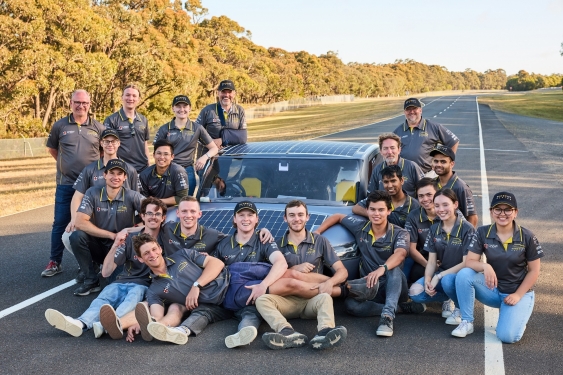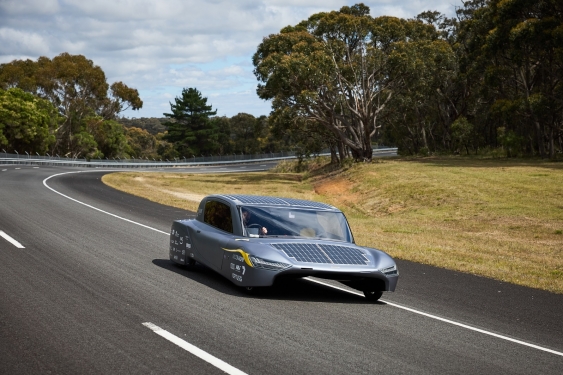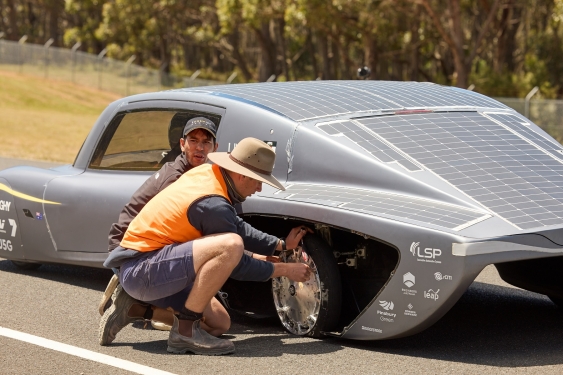The UNSW’s solar-powered electric car, the Sunswift 7, averaged nearly 85km/h over 12 hours to unofficially secure the record for the “Fastest electric vehicle over 1000 km on a single charge.”
The official honour – and Guinness World Record certificate – will be conferred once timing information and car telemetry data has been analysed and confirmed by a team of experts.

Image: Richard Freeman/UNSW
The car, designed and built by students involved in UNSW’s Sunswift program, posted a time of 11 hours 53.32 minutes for the 1,000 km distance at the Australian Automotive Research Centre in Wensleydale, Victoria.
Th Sunswift Racing team is headed up by Richard Hopkins, who won four F1 world titles at his former post as Head of Operations at Red Bull, and has a big vision for the Sunswift program at UNSW. Intent on bringing research into broad and commercial applications, the Sunswift program today has a host of partnerships and sub-projects.
Hopkins says this world record shows what is possible and what can be achieved, albeit with a significant weight advantage over road legal cars which require features like airbags and air conditioning – components the Sunswift 7 car, built to race, has done away with.

The Sunswift 7 car weighs just 500 kg, about one quarter that of a Tesla, and boasts high efficiencies because of its aerodynamic design, motors and drive chain.
“During this record, the energy consumption was just 3.8 kWh/100km, whereas even the most efficient EVs on the road today only achieve a rating of 15kWh/100km and the average is around 20kWh/100km,” Hopkins added.
This content is protected by copyright and may not be reused. If you want to cooperate with us and would like to reuse some of our content, please contact: editors@pv-magazine.com.









By submitting this form you agree to pv magazine using your data for the purposes of publishing your comment.
Your personal data will only be disclosed or otherwise transmitted to third parties for the purposes of spam filtering or if this is necessary for technical maintenance of the website. Any other transfer to third parties will not take place unless this is justified on the basis of applicable data protection regulations or if pv magazine is legally obliged to do so.
You may revoke this consent at any time with effect for the future, in which case your personal data will be deleted immediately. Otherwise, your data will be deleted if pv magazine has processed your request or the purpose of data storage is fulfilled.
Further information on data privacy can be found in our Data Protection Policy.